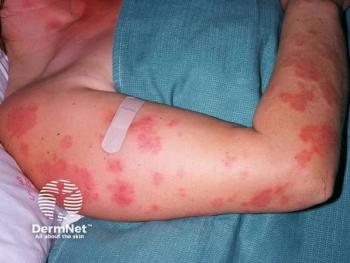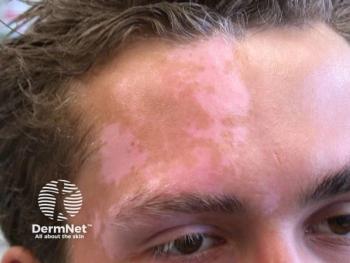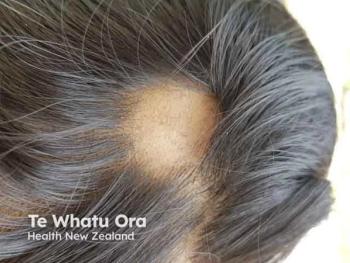
FDA Sets PDUFA Date for Pembrolizumab
The FDA has granted priority review to Merck’s application for pembrolizumab, a treatment for melanoma.
Merck announced that its phase 3 KEYNOTE-716 (NCT03553836) trial investigating pembrolizumab (Keytruda) has met its primary endpoint of recurrence-free survival (RFS) for the treatment of patients with surgically removed stage II melanomas.1
Pembrolizumab is a humanized monoclonal antibody that blocks the interaction between an anti-programmed death receptor (PD)-1 and its ligands, PD-L1 and PD-L2, thus activating T lymphocytes which may affect both tumor and healthy cells.
An analysis of the current data showed that treatment with pembrolizumab as an alone agent demonstrated statistically significant improvement in RFS compared to placebo as adjuvant therapy for patients and no new safety signals were observed.
KEYNOTE-716 is a randomized, 2-part, phase 3 trial evaluating the adjuvant treatment of patients with completely resected high-risk stage II melanoma. There were 954 patients ages 12 years and older enrolled in the study and the primary endpoint was RFS. The secondary endpoints were distant metastasis-free survival, overall survival, safety, and quality of life.
Part 1 of the study, which was double blind, the adult patients were randomized to either be treated with pembrolizumab 200 mg intravenously (IV) or placebo by IV every 3 weeks for up to 17 cycles (1 year). The pediatric patients were randomized to be treated with pembrolizumab 2 mg/kg with a maximum dose of 200 mg or placebo every 3 weeks for up to 17 cycles (1 year).
The second part of the study was an open label trial for adult and pediatric patients who were then treated with up to 35 cycles, up to 2 years, of pembrolizumab. To be eligible for part 2, patients had to have recurred after receiving placebo or completed 17 cycles of pembrolizumab and patients on pembrolizumab must not have experience disease recurrence within 6 months of completing treatment.
Based on that data, the FDA has accepted a new supplemental Biologics License Application (sBLA) for pembrolizumab to treat patients 12 years or older with stage IIB or IIC melanoma following removal and has set a Prescription Drug User Fee Act (PDUFA) date for December 4, 2021.
“KEYNOTE-716 is the first phase 3 study to evaluate adjuvant therapy solely for stage IIB and IIC melanoma – an area with high unmet need,” said Jason Luke, MD, director, Cancer Immunotherapeutics Center at University of Pittsburg Medical Center Hillman Cancer Center. “By moving immunotherapy with Keytruda to earlier stages of melanoma, we have the opportunity to reduce the risk of recurrence for high-risk stage II patients compared to observation alone following complete resection.”
Pembrolizumab has been established as an important treatment option for the adjuvant treatment of patients with resected stage III melanoma and is approved in more than 90 countries based on results from the EORTC1325/KEYNOTE-054 (NCT02362594). Also, it is approved for treatment of patients with unresectable or metastatic cancer a worldwide. KEYNOTE-716 contributes to data seen in earlier stages of disease in 4 tumor types (melanoma, renal cell carcinoma, triple-negative breast cancer and non-muscle invasive bladder cancer).
Reference:
1. Merck’s Keytruda® (Pembrolizumab) significantly prolonged recurrence-free survival (Rfs) compared to placebo as adjuvant therapy for patients with stage ii resected high-risk melanoma in phase 3 keynote-716 trial. Merck.com. Accessed August 10, 2021. https://www.merck.com/news/mercks-keytruda-pembrolizumab-significantly-prolonged-recurrence-free-survival-rfs-compared-to-placebo-as-adjuvant-therapy-for-patients-with-stage-ii-resected-high-risk-melanoma-in/
Newsletter
Like what you’re reading? Subscribe to Dermatology Times for weekly updates on therapies, innovations, and real-world practice tips.











